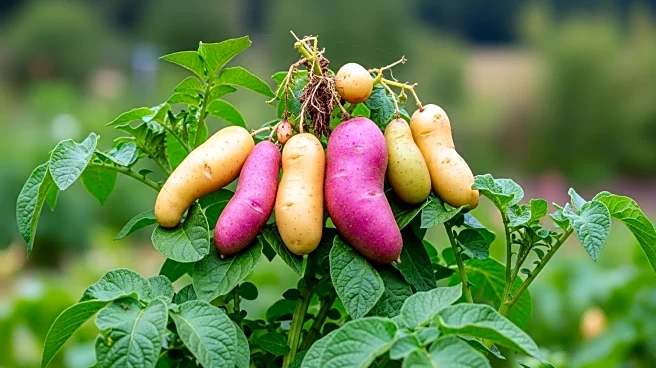What is the story about?
What's Happening?
Recent scientific insights have revealed that the modern potato is the result of a hybridization event between two ancient plant species. This discovery challenges the long-held belief that hybridization is typically detrimental. Instead, it shows that such events can lead to beneficial traits, as seen in the potato's development. The research highlights similar occurrences in other species, such as desert frogs, where hybridization offers survival advantages. These findings are reshaping scientific understanding of evolutionary processes, suggesting that hybridization can be a significant driver of biodiversity and adaptation.
Why It's Important?
This revelation about the potato's origins has broader implications for agriculture and biodiversity. Understanding hybridization can lead to new agricultural practices that enhance crop resilience and productivity. It also prompts a reevaluation of how species evolve and adapt, potentially influencing conservation strategies. The study of hybrids could unlock new methods for developing crops that are better suited to changing environmental conditions, thereby supporting food security. Additionally, it challenges traditional views on species purity and adaptation, opening new avenues for research in evolutionary biology.















